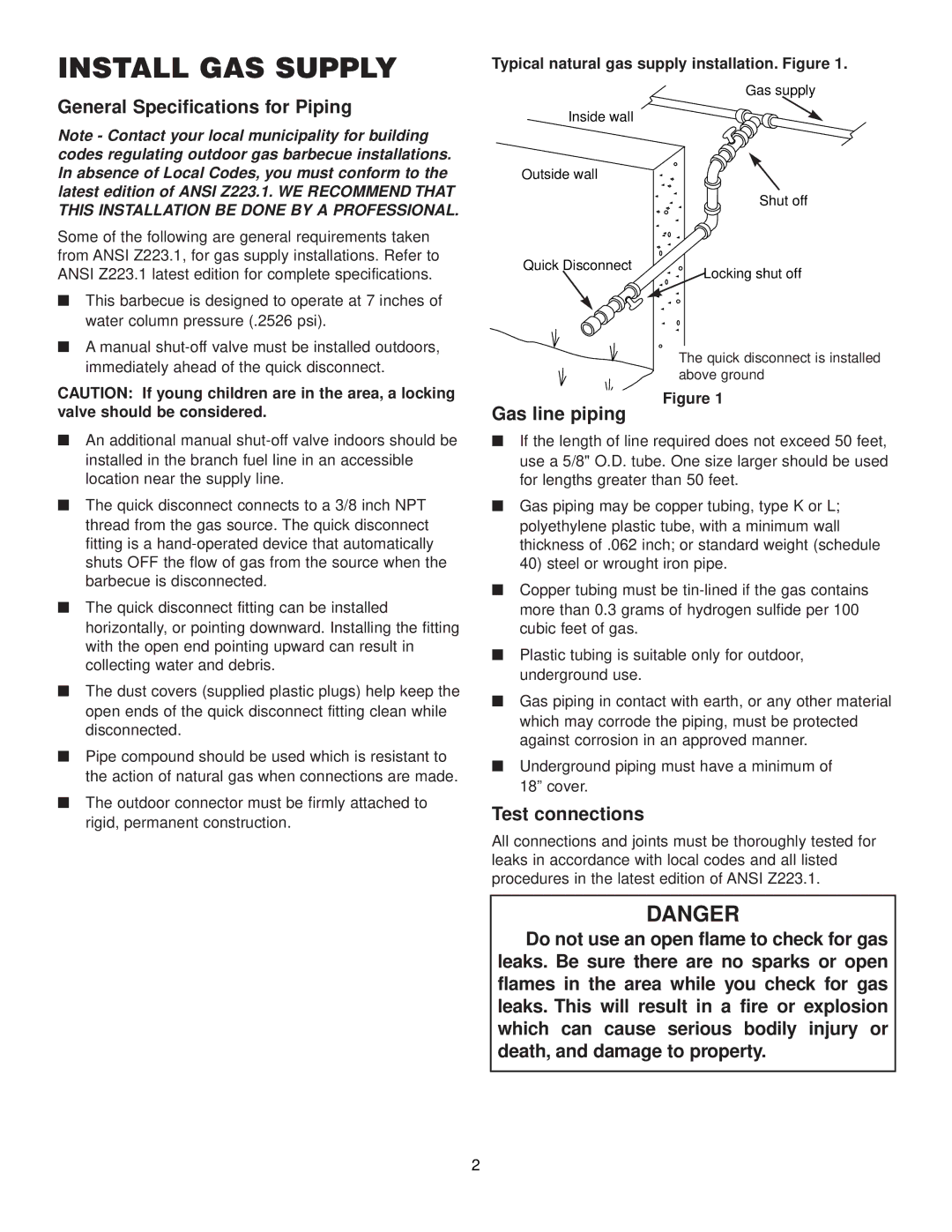
INSTALL GAS SUPPLY
General Specifications for Piping
Note - Contact your local municipality for building codes regulating outdoor gas barbecue installations. In absence of Local Codes, you must conform to the latest edition of ANSI Z223.1. WE RECOMMEND THAT THIS INSTALLATION BE DONE BY A PROFESSIONAL.
Some of the following are general requirements taken from ANSI Z223.1, for gas supply installations. Refer to ANSI Z223.1 latest edition for complete specifications.
■This barbecue is designed to operate at 7 inches of water column pressure (.2526 psi).
■A manual
CAUTION: If young children are in the area, a locking valve should be considered.
■An additional manual
■The quick disconnect connects to a 3/8 inch NPT thread from the gas source. The quick disconnect fitting is a
■The quick disconnect fitting can be installed horizontally, or pointing downward. Installing the fitting with the open end pointing upward can result in collecting water and debris.
■The dust covers (supplied plastic plugs) help keep the open ends of the quick disconnect fitting clean while disconnected.
■Pipe compound should be used which is resistant to the action of natural gas when connections are made.
■The outdoor connector must be firmly attached to rigid, permanent construction.
Typical natural gas supply installation. Figure 1.
| Gas supply |
Inside wall |
|
Outside wall |
|
| Shut off |
Quick Disconnect | Locking shut off |
|
The quick disconnect is installed above ground
Figure 1
Gas line piping
■If the length of line required does not exceed 50 feet, use a 5/8" O.D. tube. One size larger should be used for lengths greater than 50 feet.
■Gas piping may be copper tubing, type K or L; polyethylene plastic tube, with a minimum wall thickness of .062 inch; or standard weight (schedule 40) steel or wrought iron pipe.
■Copper tubing must be
■Plastic tubing is suitable only for outdoor, underground use.
■Gas piping in contact with earth, or any other material which may corrode the piping, must be protected against corrosion in an approved manner.
■Underground piping must have a minimum of 18” cover.
Test connections
All connections and joints must be thoroughly tested for leaks in accordance with local codes and all listed procedures in the latest edition of ANSI Z223.1.
DANGER
Do not use an open flame to check for gas leaks. Be sure there are no sparks or open flames in the area while you check for gas leaks. This will result in a fire or explosion which can cause serious bodily injury or death, and damage to property.
2
